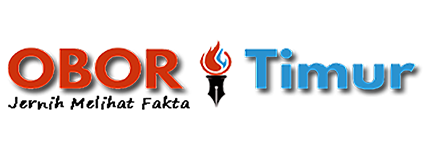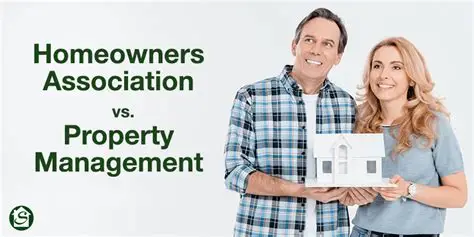Exploring the realm of Property management for homeowners associations, this introduction delves into the pivotal role property management plays in upholding community standards and safeguarding property values. Through a series of engaging discussions, readers will gain valuable insights into the challenges faced by HOAs and how property management serves as a cornerstone for harmonious living.
As we navigate through the intricacies of property management for homeowners associations, a comprehensive overview awaits, shedding light on the responsibilities of property managers, effective communication strategies, and common issues faced within HOA communities.
Importance of Property Management for Homeowners Associations
Property management plays a crucial role in maintaining community standards within homeowners associations. By enforcing rules and regulations, property managers ensure that all residents comply with guidelines, leading to a harmonious living environment for everyone.Moreover, property management helps in preserving property values within HOAs.
By overseeing maintenance tasks, addressing issues promptly, and implementing improvements, property managers contribute to enhancing the overall appeal of the community. This, in turn, positively impacts property values, benefiting all homeowners.
Common Challenges Addressed by Property Management in HOAs
- Enforcement of Rules and Regulations: Property managers handle violations of community guidelines, ensuring that all residents adhere to the established standards.
- Maintenance and Repairs: Property managers oversee regular maintenance tasks and coordinate repairs to keep the community in optimal condition.
- Financial Management: Property managers handle budgeting, collecting dues, and financial planning to ensure the financial stability of the HOA.
- Conflict Resolution: Property managers mediate disputes among residents and facilitate communication to maintain a peaceful living environment.
Responsibilities of Property Managers in Homeowners Associations
Property managers in homeowners associations have a wide range of responsibilities to ensure the smooth operation and maintenance of the community. These tasks are crucial for maintaining property values, resolving conflicts, and upholding the rules and regulations set by the HOA board.
Day-to-Day Tasks
Property managers handle the day-to-day operations of the homeowners association, which includes overseeing maintenance and repairs, managing vendor contracts, and enforcing community rules. They are responsible for ensuring that common areas are well-maintained and addressing any issues that arise in a timely manner.
Financial Management
One of the key responsibilities of property managers in homeowners associations is financial management. This includes creating and managing the annual budget, collecting dues from homeowners, and paying bills on behalf of the HOA. Property managers also prepare financial reports for the board and ensure that the association remains financially stable.
Communication Role
Property managers serve as the main point of contact between homeowners and the HOA board. They communicate important information to residents, such as upcoming meetings, rule changes, and community events. Property managers also address homeowner concerns and work to resolve any conflicts that may arise within the community.
Effective Communication Strategies in Property Management
Effective communication plays a crucial role in property management for homeowners associations. It helps in fostering a positive relationship between property managers and homeowners, ensuring smooth operations and a sense of community. Here are some strategies for effective communication in HOA property management:
Transparent Communication
- Establish open and transparent lines of communication between property managers and homeowners. Transparency builds trust and helps in addressing any concerns or issues promptly.
- Regularly update homeowners on any changes, rules, or regulations within the community. Transparency in communication can prevent misunderstandings and conflicts.
- Encourage feedback from homeowners and address their questions or suggestions in a timely manner. This two-way communication fosters a sense of community involvement and ownership.
Effective Communication Channels
- Utilize newsletters to keep homeowners informed about upcoming events, maintenance schedules, or community news. Newsletters are a great way to reach a larger audience and provide detailed information.
- Send regular emails to communicate important announcements, reminders, or updates. Emails are a fast and efficient way to reach homeowners and ensure that information is received promptly.
- Organize community meetings or town halls to discuss important matters face-to-face with homeowners. Meetings provide a platform for interactive communication, where residents can voice their concerns and opinions directly.
Common Issues and Solutions in Property Management for Homeowners Associations
Property managers often encounter various challenges when managing HOA properties. These issues can range from conflicts between homeowners and the HOA board to maintenance problems within the community. Implementing effective strategies and best practices is crucial for addressing and resolving these common issues in property management for homeowners associations.
Resolving Conflicts between Homeowners and the HOA Board
- Establish open lines of communication: Encourage regular communication between homeowners and the HOA board to address concerns and issues promptly.
- Set clear guidelines and rules: Clearly Artikel rules and regulations to prevent misunderstandings and conflicts among homeowners.
- Implement a fair dispute resolution process: Develop a structured process for resolving disagreements and conflicts in a fair and transparent manner.
- Seek mediation or arbitration: Utilize mediation or arbitration services to help mediate disputes and reach mutually agreeable solutions.
Handling Maintenance Issues within an HOA Community
- Regular property inspections: Conduct routine inspections to identify maintenance issues early and address them promptly.
- Prioritize maintenance requests: Establish a system for prioritizing maintenance requests based on urgency and impact on residents.
- Work with reliable vendors: Partner with reputable vendors and contractors to ensure quality maintenance services for the community.
- Create a maintenance schedule: Develop a maintenance schedule to proactively address ongoing maintenance needs and prevent major issues.
Last Word
In conclusion, Property management for homeowners associations is a multifaceted landscape that requires diligence, clear communication, and strategic problem-solving. By understanding the importance of property management and the pivotal role it plays in fostering thriving HOA communities, residents and property managers alike can work towards a harmonious living environment that stands the test of time.
Query Resolution
What are some common challenges that property management addresses in HOAs?
Property management often tackles issues such as maintenance coordination, rule enforcement, and conflict resolution among homeowners.
What are the day-to-day tasks of property managers within an HOA?
Property managers handle tasks like overseeing maintenance, managing finances, enforcing rules, and communicating with residents.
How can property managers effectively communicate rules and regulations to residents?
Property managers can utilize newsletters, community meetings, and emails to ensure clear and transparent communication with residents regarding rules and regulations.
What are some best practices for handling maintenance issues within an HOA community?
Best practices include timely response to maintenance requests, proactive maintenance planning, and working with reliable vendors for quality service.













